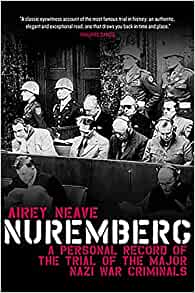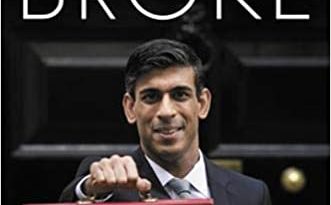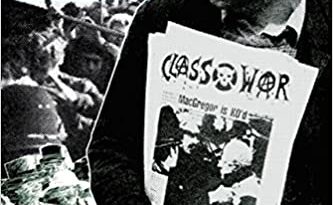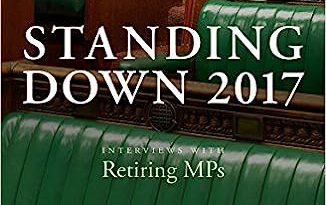BOOK REVIEW : Nuremberg – A Personal Record of the Trial of the Major Nazi War Criminals by Airey Neave
This book is a recent reprint by Biteback Publishing, using the foreword from the 1978 edition which was written by Dame Rebecca West. The author of the book, Airey Neave, had what could be called a busy war, escaping from the Colditz prisoner of war camp and working as an intelligence agent for MI9. At the end of the Second World War, and somewhat to his surprise, he was asked to support the International Military Tribunal, not least as he spoke fluent German. This is the book that he wrote about the war crimes trials and his involvement in them in Nuremberg. Neave became the Conservative MP for Abingdon in 1953 and he was the Shadow Secretary of State for Northern Ireland in the second half of the 1970s, later becoming one of the key supporters of Margaret Thatcher. The end of Neave’s story was tragic, assassinated by the INLA who killed him on 30 March 1979 by planting a car bomb which exploded in the estate of the Palace of Westminster.
Neave is understated in the book about how he received the call to assist in the Nuremberg Trials, although his credentials to work alongside the allies to deliver justice were strong. He had experience of interrogation having been grilled by the Gestapo, he was able to speak German, he knew how prisoners were kept and had studied some international law at Oxford University. Neave notes in the book that the trials nearly didn’t take place, as Winston Churchill had been keen for German leaders to have been shot dead during the advance of the allied troops, but Roosevelt felt that there should be a trial. Neave mentions that numerous countries such as the Netherlands, Belgium, Norway and Poland were “urging vengeance” and that the “Americans and British had not experienced the horrors of Nazi occupation and misunderstood the depth of feeling in liberated countries”.
One of Neave’s responsibilities was informing the German prisoners what they were being tried for and explaining their rights to legal assistance. He found Rudolf Hess to be a “worn figure” and he was also “disturbed by his wild appearance”, but Neave was confident that he was fit to face trial mentally and physically. Many years later Neave was one of the MPs who appealed for the release of Hess from Spandau prison, where he was the only inmate from 1966 and 1987.
Neave had little respect for Julius Streicher, noting that he was “primarily a sex criminal” and noted that he had the lowest IQ of any of the prisoners and “was a primitive creature”. He noted that it was Streicher’s anti-semitism, and his control of the Der Stürmer newspaper, which he had founded, that helped the propaganda campaign the Nazis wanted against the Jewish community.
During 1941, Neave had escaped from a prisoner of war camp in what is now Torun, in Poland, and had seen himself the way that Jews were treated. He also formed many friendships with Poles and notes in the book that “I felt particularly devoted to their Resistance movement”. This was on his mind when he served legal notice on Hans Frank in his cell, as he had been the Governor General of the Polish territory between 1939 and 1945. Although recognising the effective and brutal way in which Frank had slaughtered hundreds of thousands of Jews, Neave noted “Frank had not been squeamish about murdering innocent people, why should the world be squeamish about his end?”. When serving legal notice on Ernst Kaltenbrunner, Neave admitted saying to a colleague who asked him why he spent longer reading the charges to this prisoner “because of Mauthausen, because of Warsaw and not for the first time that afternoon I felt that I had come to speak for the dead”. Much of this inevitably felt personal to Neave, although he did attempt to remain a dutiful servant of the courts and didn’t let his experiences during the war impact on that element of his role.
Neave spends a lot of time in the book writing pen portraits of those facing trial, noting their physical appearance (often fat or bloated) and how they him feel when talking to them. Although not taken in by the Nazis, he was sympathetic to some more than others, describing his exchanges with the prisoners with considerable clarity. There is relatively little about the trial itself in the book, as Neave mentions that “there were few highlights” and “relentless hours of boredom” of the legal proceedings themselves.
Neave’s writing comes across as making him sound as a fair man and he did try and get an understanding of the individuals and how their emotions changed during their time in prison cells awaiting trial. He concluded though that “I sought for any signs of true remorse and did not find them. They were crocodile tears, they wept for themselves and not for the dead”. It is the human side of this book which is its greatest strength, as there is no shortage of material written about the trials themselves. Neave was able to observe the prisoners in a manner that few others had the opportunity to do so, making this account authentic and deeper.
As for the trials themselves, Neave concluded:
“Those who did not experience Nazi occupation or are too young to have taken part in the death struggle with the Third Reich should not ignore the lessons of Nuremberg. The mass murder of Jews dominated the trial, but there were other acts of cruelty displayed to an unbelieving world”.
It is fortunate that Biteback have enabled the book to be republished and hopefully it will be a useful resource not just to those wanting an historical account of the trials, but also to those wanting a greater understanding of Airey Neave himself, who would have likely become one of the more distinguished politicians during the Thatcher years.



